Daily Vocabulary Words: List of Daily Used Words in Leading International Newspapers
Hi there. Welcome to this special section @ Wordpandit.
Our endeavour here is very simple: to highlight important daily vocabulary words, which you would come across in leading newspapers in the country. We have included the following newspapers in our selection:
• The New York Times
• The Washington Post
• Scientific American
• BBC
• The Guardian
• Psychology Today
• Wall Street Journal
• The Economist
We are putting in extensive work for developing your vocabulary. All you have got to do is be regular with this section and check out this post on a daily basis. This is your repository of words that are commonly used and essentially, we are posting a list of daily used words. Hence, this has significant practical application as it teaches you words that are used commonly in leading publications mentioned above.
Visit the website daily to learn words from leading international newspapers.
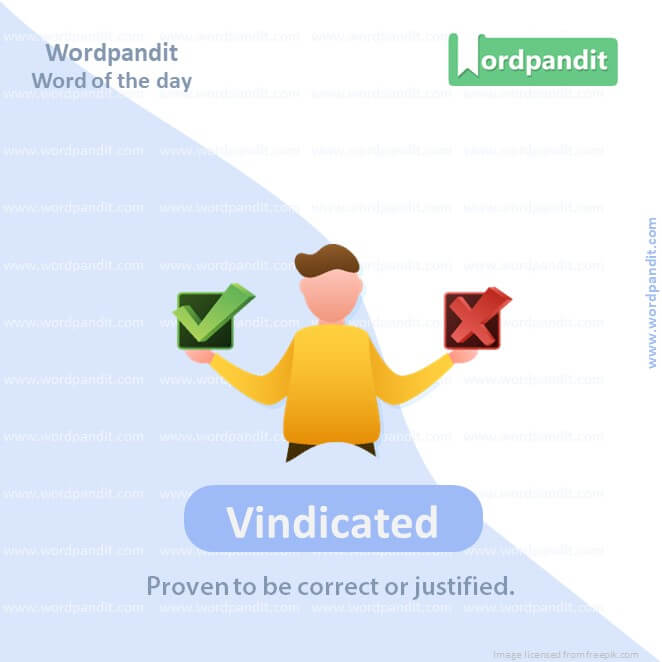
Word-1: Vindicated
Meaning: Proven to be correct or justified.
Synonyms: Justified, absolved, exonerated, cleared, acquitted, exculpated, proven right, defended, supported, upheld.
Usage Examples:
1. His belief in the company’s potential was vindicated when its stocks soared.
2. The DNA evidence vindicated him from the crime he was accused of.
3. Her actions were vindicated when the truth finally came out.
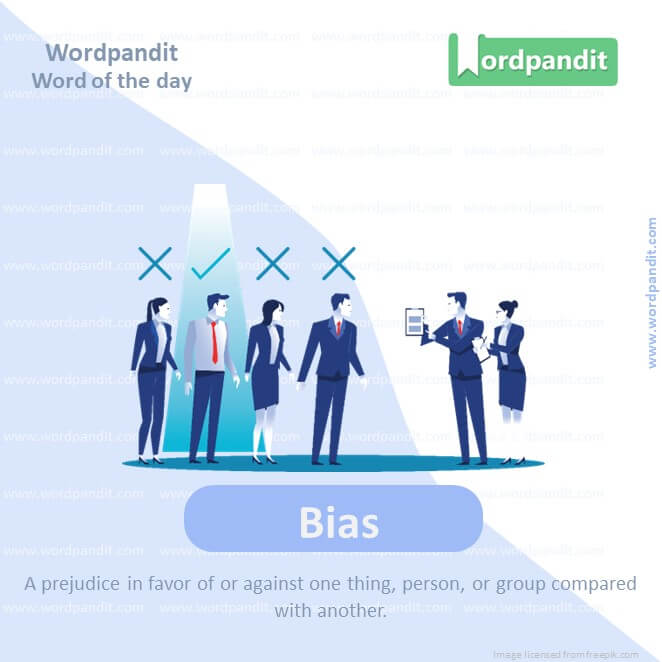
Word-2: Bias
Meaning: A prejudice in favor of or against one thing, person, or group compared with another.
Synonyms: Prejudice, partiality, favoritism, unfairness, one-sidedness, inclination, tendency, predilection, predisposition, preference.
Usage Examples:
1. The judge showed an obvious bias in favor of the local team.
2. As a journalist, it’s important to avoid any bias when reporting the news.
3. His decision was influenced by his bias against modern music.
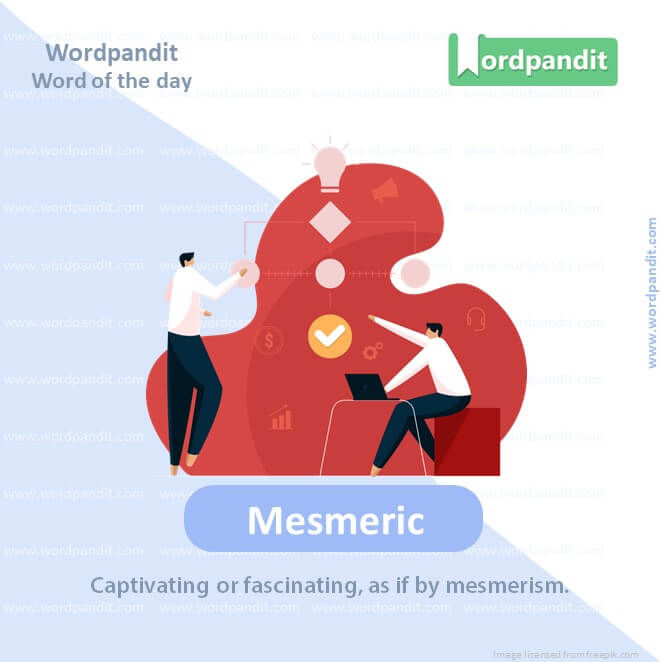
Word-3: Mesmeric
Meaning: Captivating or fascinating, as if by mesmerism.
Synonyms: Hypnotic, enchanting, captivating, spellbinding, enthralling, entrancing, fascinating, bewitching, charming, magnetic.
Usage Examples:
1. Her mesmeric performance kept the audience hooked till the end.
2. The novel had a mesmeric quality that made it hard to put down.
3. The singer had a mesmeric voice that drew everyone’s attention.
Word-4: Gaze
Meaning: To look steadily and intently, especially in admiration, surprise, or thought.
Synonyms: Stare, look, glance, peep, peer, gawk, eyeball, observe, watch.
Usage Examples:
1. He sat quietly, his gaze fixed on the distant horizon.
2. Her gaze met his, and she was lost in his eyes.
3. She turned to gaze out of the window at the rain.
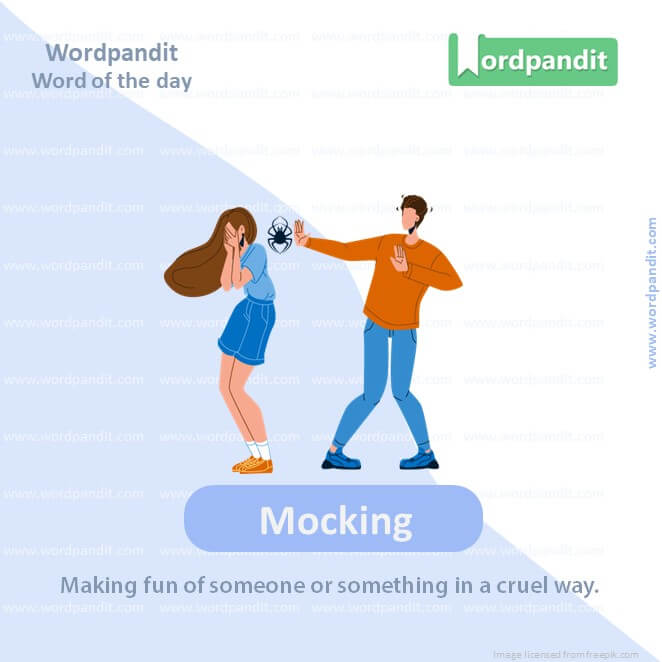
Word-5: Mocking
Meaning: Making fun of someone or something in a cruel way.
Synonyms: Derisive, scornful, contemptuous, ridiculing, sneering, scoffing, jeering, taunting, sarcastic.
Usage Examples:
1. Her mocking laugh made him feel embarrassed.
2. He had a mocking expression on his face when he saw her outfit.
3. The kids endured the constant mocking from their peers due to their accents.
Word-6: Figurative
Meaning: Departing from a literal use of words; metaphorical.
Synonyms: Metaphorical, symbolic, emblematic, representative, illustrative, non-literal, allegorical, suggestive, allusive.
Usage Examples:
1. The phrase “a heart of gold” is a figurative expression meaning that someone is very kind and generous.
2. His poems are rich in figurative language, full of metaphors and similes.
3. The painting was figurative, representing freedom through the image of a bird soaring high in the sky.
Word-7: Passé
Meaning: No longer fashionable; out of date.
Synonyms: Outdated, outmoded, old-fashioned, antiquated, archaic, obsolete, unfashionable, dated.
Usage Examples:
1. The disco music of the ’70s is considered passé by today’s youth.
2. That style of clothing is so passé, it’s time for a wardrobe update.
3. Her jokes were passé and failed to amuse the audience.
Word-8: Juvenile
Meaning: Relating to young people or characteristic of young people.
Synonyms: Youthful, adolescent, young, teenage, childish, immature, infantile, junior, pubescent.
Usage Examples:
1. The crime rate among the juvenile population has been decreasing over the past few years.
2. Her juvenile behavior was inappropriate for a woman of her age.
3. The book explores the challenges and joys of the juvenile years.
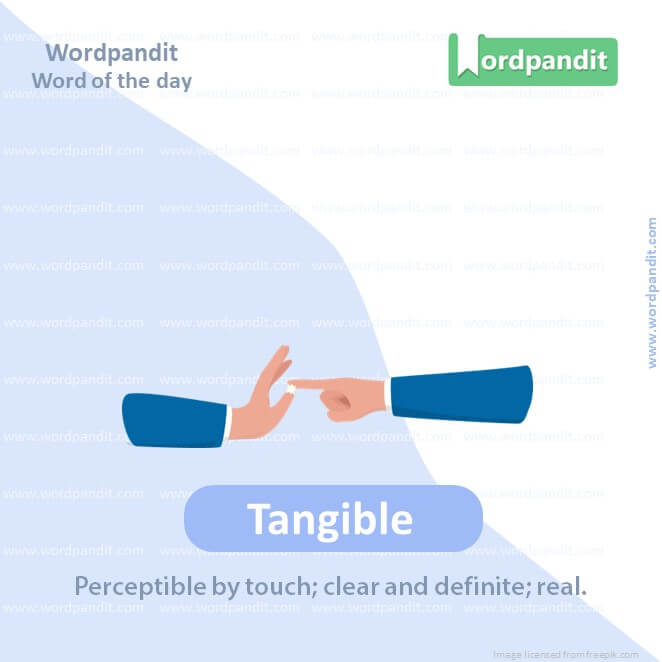
Word-9: Tangible
Meaning: Perceptible by touch; clear and definite; real.
Synonyms: Touchable, palpable, material, physical, real, substantial, concrete, perceptible, noticeable, visible.
Usage Examples:
1. The benefits of the new policy were tangible, as the economy started improving.
2. There was no tangible evidence to support his claim.
3. They made tangible progress on the project this week.











